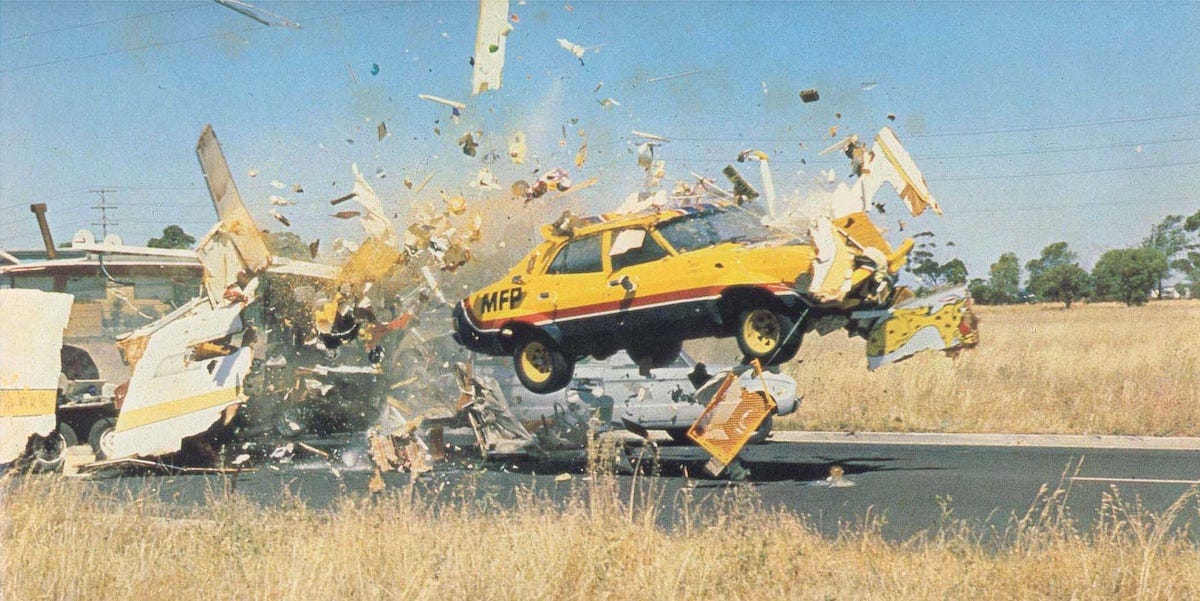One of the all-time best Twitter jokes was the following, from Alex Blechman:
Sci-Fi Author: In my book I invented the Torment Nexus as a cautionary tale.
Tech Company: At long last, we have created the Torment Nexus from classic sci-fi novel Don’t Create the Torment Nexus.
You can’t help but think of it every time you see something like, say, a robotics company strapping a flamethrower to a robot dog or creating a fleet of drones that can autonomously execute people from the skies. The Terminator wasn’t a how-to guide, ya dig?
The Torment Nexus came to mind this week when Scarlett Johansson announced she was suing OpenAI for creating an AI voice that sounded suspiciously like Samantha, the AI voiced by Johansson in the Spike Jonze movie Her. ScarJo had good reason to be suspicious, given that OpenAI had contacted her about voicing the program and the firm’s megalomaniacal frontman, Sam Altman, announced the launch with a tweet that just read “her.”
OpenAI suspended use of the voice, though they insist they hired someone to do the work. Whether or not Johansson has a legal case is something I’ll leave to the lawyers; my sense is she might have a tough case, since celebrity impersonations have long been used to sell goods and as long as there’s clearly no endorsement by the actual celebrity herself.
Still, the reason people reacted so viscerally to this is that it’s a representation of everyone’s greatest fears about AI and the arrogant masters of the universe types championing it. Johansson has recorded more than enough dialogue and given more than enough interviews for AI programs to cobble together speech that sounds as if she’s delivering it. Given that outfits like OpenAI have just been openly vacuuming up all manner of copyrighted material to train their programs to create a simulacrum of humanity’s divine spark, you’ll simply have to forgive the people who doubt that Altman and his tech goons are on the up and up.
Because, again, you’re talking about the sort of people who read Don’t Create the Torment Nexus and then decide they want to create the Torment Nexus. The whole point of Her is that AI not only can’t help people get over their own internal problems, it’ll also exacerbate them. Human loneliness cannot be solved by a sultry artificial intelligence. Triumphantly tweeting “her” is only slightly less insane than tweeting “August 29, 1997,” after creating a program you cheekily named BlueSky Net or some such.
It’ll all be worth it if Altman’s hubris gives ScarJo the opening to destroy our Torment Nexus once and for all. But something tells me we’re not going to get that lucky.
Because it’s Memorial Day weekend, we’re releasing The Bulwark Goes to Hollywood podcast today instead of its normal time on Saturday. Give you a little something to listen to during your travels. I talked to Bobby Miller, writer/director of The Cleanse on his film finally getting a proper Blu-ray release and why physical media still matters. We also talked a bit about his work in the world of voice direction and why he decided to write a novel in addition to everything else he’s up to, creatively. You can pick up a copy of The Cleanse at Amazon or for a few bucks less at the wonderful indie purveyor DiabolikDVD.
A Movie Isn't Real Until You Can Hold It
This week, I’m joined by Bobby Miller, the writer/director of The Cleanse, to talk about the film’s long and winding path to a Blu-ray release. (You can buy it at Amazon or for five bucks less at the great DiabolikDVD.) We discussed getting that film made, the struggle to sec…
Links!
On Across the Movie Aisle this week, we reviewed The Idea of You, a movie that really didn’t work for any of us on any level. And yet, it is a big hit for Amazon, as far as these things go.
The next season of Jack Reacher will feature a man even larger than Jack Reacher fighting Jack Reacher. Truly the future is an age of wonders!
As a one-time Counter-Strike enthusiast, I was deeply amused by my colleague Martyn Wendell Jones’s piece for us on the weird state of the game following Russia’s illegal invasion of Ukraine.
Steven Rales—who founded the production label Indian Paintbrush, which is probably best known for financing the work of Wes Anderson—has purchased Criterion and Janus Films. It’s hard to think of a better billionaire to pick up the boutique label.
Assigned Viewing: Mad Max (Fittingly, on Max)
It’s interesting to go back and watch George Miller’s original Mad Max, because it feels like it’s from a slightly different genre: rather than a post-apocalypse film, it’s a pre-apocalypse film. Things are just starting to break down; the world is going to seed but still basically functioning; society’s rules and mores are changing, rapidly, and while you can feel bad stuff on the horizon you can still make it work for you and your family. At least until you can’t. And this movie is very much about what happens to a man who no longer can make it work for his family. Great stuff, you can see why it inspired one of our best franchises.






